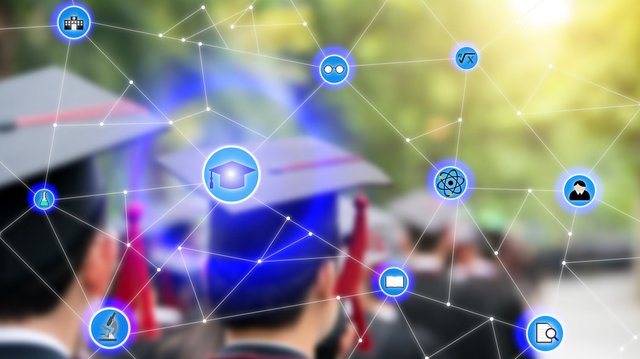Blockchain Bachelor’s Thesis – Information Overload and Methods of its Elimination in the Modern Information Society: Definitions of Terms and Premises - Information Literacy

Previously published
Introduction
Blockchainized Bachelor’s Thesis
Blockchainized Bachelor’s Thesis – Initial Brainstorm
Thesis
1.Abstract
4.Definitions of terms and premises
4.5. Information literacy
Sources walkthrough
1.Battling Information Overload in the Information Age
3.Database Research faces the Information Explosion
4.The experience of mobile information overload: struggling between needs and constraints
5.Longer online reviews are not necessarily better
6.An ant-colony based approach for real-time implicit collaborative information seeking
Case study: Interview
1.First draft
4.5. Information literacy
Sylvie Chevillotte wrote in 2010 that "there are as many definitions of information literacy as authors who write about it" [7]. However, the formulation of most definitions within information science converges to “very difficult to grasp key competencies”. [28]
American Library Association, for example, defines information literacy as “sort of a broader approach to handling information, which includes softer non-technical skills. It's the ability to know when information is needed, to be able to identify it, find it, evaluate and effectively use that information to solve any given problem. Indeed, it is a six-step approach - identifying information needs, identifying relevant information, finding information, evaluating this information, organizing this information and making effective use of it [4].”
Hana Landová, throughout her scientific publications, researched information literacy and came up with a much more practical definition of information literacy. Literacy means in a figurative meaning some specific ability, or skill, that usually is mental. Functional literacy is then understood as a literacy in a context, ie literacy related to a situation or circumstance. International studies of functional literacy of adults and its second wave defined functional literacy as a set that consists of reading literacy (the orientation in text), document literacy (the ability to create a network of contexts across different documents or different parts of the documents), numeracy (numerical operations) and language skills (mastery of the mother tongue and in the information society, in the western part of the planet, English). Landová later argues that almost everything expected from information literacy is already contained in a functional literacy itself. Information literacy is therefore a combination of functional literacy and ICT literacy as defined above. To make things easier, ICT literacy is an adoption of skills that help us to understand information and communication technologies and that help us work with them in order to reach our desired outcomes [28].
Information-literate person is therefore one that has internalized the values that support the use of information, has detailed knowledge of the world of information and approaches them critically. [4] It is also a person who is functionally literate and at the same time has acquired ICT literacy [28].
Sources
4.BAWDEN, David a Lyn ROBINSON. Introduction to information science. Chicago: Neal-Schuman, 2013. ISBN 978-1555708610.
7.Chevillotte, Sylvie. Information literacy. In Encyclopedia of library and information sciences, Marcia J. Bates, 2421-2428. 3rd ed. Boca Raton, FL: CRC Press
28.DOMBROVSKÁ, Michaela, Hana LANDOVÁ a Ludmila TICHÁ. Informační gramotnost - teorie a praxe v ČR. Knihovnická revue[online]. 2004, 15(1), 7-18 [cit. 2018-05-03]. ISSN 1214-8678. Accessible from: http://full.nkp.cz/nkkr/NKKR0401/0401007.html

Hi @fingersik!
Your post was upvoted by @steem-ua, new Steem dApp, using UserAuthority for algorithmic post curation!
Your UA account score is currently 4.672 which ranks you at #1539 across all Steem accounts.
Your rank has dropped 5 places in the last three days (old rank 1534).
In our last Algorithmic Curation Round, consisting of 391 contributions, your post is ranked at #328.
Evaluation of your UA score:
Feel free to join our @steem-ua Discord server